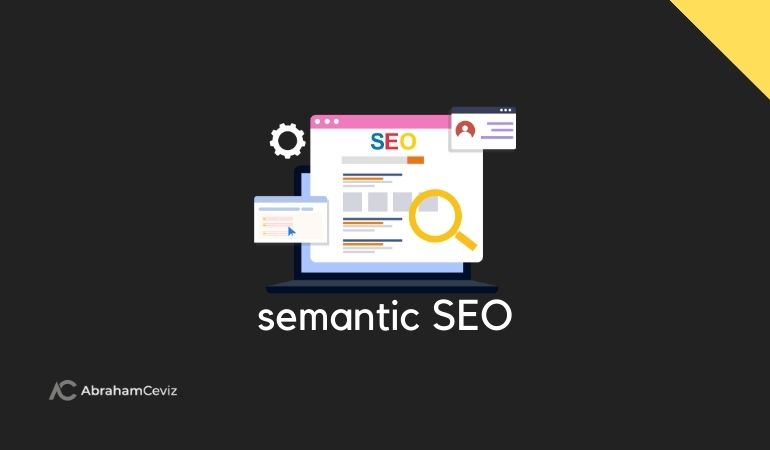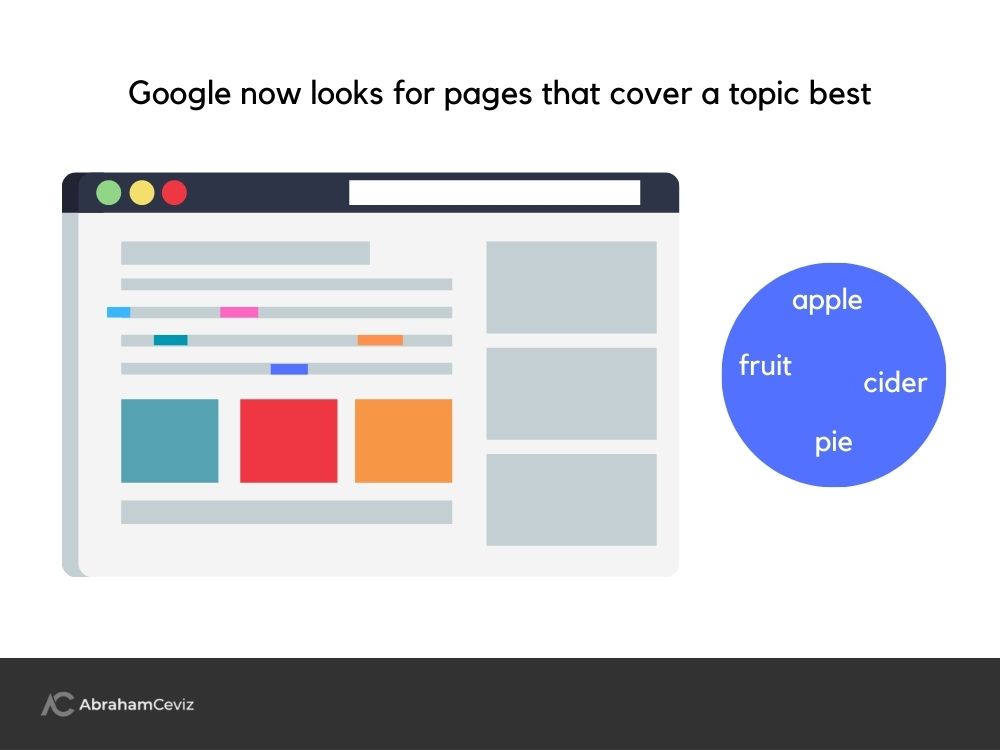
The digital world is like a vast ocean, where information flows in torrents. Diving into it to find the exact piece of data you need can often be like finding a needle in a haystack. But, what if the needle could come to you? In this article, we explore Semantic SEO: The Game Changer in Search Engine Optimization for 2023, an innovation that aims to make this a reality.
What is Semantic SEO?
Semantic SEO is the practice of writing and structuring content in such a way that it comprehensively answers user queries. Instead of focusing solely on keyword placement and density, Semantic SEO aims to satisfy the user’s intent by providing comprehensive and highly relevant content.
How Does Semantic SEO Work?
Semantic SEO leverages the advancements in machine learning and artificial intelligence to interpret the context and intent behind a user’s search query. It aims to comprehend and meet the diverse, dynamic nature of user’s search intent.
Semantic SEO: The Game Changer in Search Engine Optimization for 2023
Semantic SEO is a new-fangled approach that’s shaking up the world of Search Engine Optimization. So what’s the big deal about it? It’s all about understanding the intent and context of search queries, not just the keywords themselves. In other words, it’s bringing a slice of human-like understanding to the realm of search engines. It’s like taking a shot in the dark and hitting the bull’s eye, all thanks to the advanced algorithms working behind the scenes.
What Makes Semantic SEO Stand Out?
What separates Semantic SEO from traditional SEO is its ability to understand user intent and provide more relevant results. By considering the relationship between words and phrases, it has taken user experience to another level. Instead of clinging to exact keywords, it ventures into the realm of phrases and their meaning in context. It’s a bit like talking to a savvy friend who just “gets” what you’re saying, rather than a language newbie who takes everything literally.
The Evolution of SEO to Semantic SEO
As the web grew in complexity, SEO had to keep up, leading to the emergence of Semantic SEO. Just as humans evolved to understand complex concepts and context, SEO is undergoing its evolution. The shift towards Semantic SEO is like watching a caterpillar transform into a butterfly: it’s still essentially SEO, but in a more advanced and beautiful form.
How Semantic SEO Works: The Nuts and Bolts
Semantic SEO leverages semantic search, which focuses on determining the intent and contextual meaning of search phrases. It goes beyond mere keyword matching to providing results that genuinely fulfill the searcher’s needs. Think of it as a smart librarian who not only knows every book in the library but also understands your needs and gives you the perfect book you didn’t even realize you were looking for.
The Role of LSI Keywords

Latent Semantic Indexing (LSI) keywords play a crucial role in Semantic SEO. They are essentially terms and phrases related to your main keyword. Imagine you’re talking about apples. LSI keywords could be anything from “fruit” to “cider,” “pie,” or even “Steve Jobs,” depending on the context. LSI keywords help search engines understand the context and deliver more accurate search results.
Deep Dive into Search Engine Understanding
Semantic SEO isn’t just about keywords anymore; it’s about understanding the depth of the content you’re delivering to your audience. This means considering the nuances of language, the intent behind search queries, and how different phrases and keywords interconnect. This helps search engines like Google better comprehend your content’s context, thus increasing its visibility.
Building Bridges with Your Audience
Semantic SEO allows you to cater to user intent more effectively. Instead of merely guessing what your audience wants, you can provide in-depth and comprehensive answers to their queries. By meeting their needs and interests, you’ll foster better engagement and, in turn, create a loyal audience base.
Practical Ways to Boost Semantic SEO in 2023
Let’s discuss how to build a strong semantic SEO strategy:
1. Intent-Driven Keyword Research:
Go beyond traditional keyword research methods. Instead of focusing solely on search volume, consider user intent. Ask questions like, “What problem does my audience want to solve?” or “What question are they trying to answer?” This allows you to discover semantically related keywords that resonate with your audience’s needs.
2. Content is Still King:
Once you have your semantically enriched keywords, create high-quality, in-depth content that genuinely meets your users’ needs. This content should answer their questions, solve their problems, and offer valuable insights. It’s about quality, not quantity.
3. Leverage Schema Markup:
Schema markup is a type of microdata that helps search engines better understand the content on your website. By incorporating schema markup into your site, you can improve your site’s representation on SERPs, potentially leading to higher click-through rates.
4. Employ LSI Keywords:
LSI (Latent Semantic Indexing) keywords are semantically related to your main keywords. Incorporating LSI keywords into your content helps search engines grasp your content’s context, which can lead to improved SERP rankings.
5. Use AI and Machine Learning Tools:
With the advancements in AI and machine learning, there are now tools that can help you in your semantic SEO efforts. These tools can analyze large amounts of data and predict user behavior, providing you with valuable insights that you can use to optimize your content.
In conclusion, Semantic SEO in 2023 is all about delivering relevant, high-quality content that caters to your audience’s needs while helping search engines understand your content better. By implementing semantic SEO strategies, you’re paving the way for higher SERP rankings, better user engagement, and ultimately, increased conversions.
The Future of Semantic SEO
As technology advances, so does Semantic SEO. Its future is intertwined with other rapidly-evolving fields like Artificial Intelligence and Voice Search.
AI and Semantic SEO
Artificial Intelligence (AI) has been increasingly influencing the evolution of Semantic SEO. Sophisticated algorithms and AI systems, like Google’s BERT, are making substantial improvements in interpreting the context of search queries. This not only aids in matching queries with highly relevant content but also enhances the precision of search results. As AI continues to become more sophisticated, it is anticipated that the semantic understanding of content will become more nuanced and effective, further enhancing the user experience.
Semantic SEO and Voice Search

In parallel with AI, voice search is another rising technology shaping the future of Semantic SEO. As voice-activated assistants like Siri, Alexa, and Google Assistant become more widespread, voice search is becoming a crucial consideration for SEO. Voice search queries are generally more conversational and specific, reflecting the natural language of users. Therefore, Semantic SEO plays a crucial role in optimizing content for voice search by understanding and matching the natural language patterns and intent in such queries.
The Magic of Knowledge Graphs
Another key player in Semantic SEO is the knowledge graph. Introduced by Google in 2012, it’s a knowledge base used to enhance search results with semantic-search information. It’s like having a smart assistant who knows a little bit about a lot of things and can connect the dots to understand your query in a wider context.
Conclusion
Semantic SEO is indeed a game-changer in the realm of Search Engine Optimization. By prioritizing the comprehensive understanding of user intent, it enhances visibility and significantly improves the user experience. With the integration of cutting-edge technologies such as AI and voice search, Semantic SEO is revolutionizing the way businesses optimize their online content. In the competitive SEO landscape of 2023, businesses that effectively incorporate Semantic SEO will undoubtedly have a significant edge. Semantic SEO is not just the future; it is the present imperative for any successful SEO strategy.
Semantic SEO in 2023: FAQs
To better understand Semantic SEO: The Game Changer in Search Engine Optimization for 2023, let’s address some of the most common questions.
What is Semantic SEO?
Semantic SEO is a technique that involves optimizing content based on the intent and contextual meaning of search queries, rather than focusing solely on keywords.
How does Semantic SEO work?
Semantic SEO leverages semantic search, LSI keywords, and knowledge graphs to understand and match user intent, providing more relevant and accurate search results.
Why is Semantic SEO important?
Semantic SEO improves the search experience for users and provides businesses with new opportunities to stand out in the SERPs and better connect with their customers.
What are the challenges of Semantic SEO?
Understanding the complexities of semantic search and staying ahead of algorithm updates are among the main challenges of Semantic SEO.
How can I implement Semantic SEO?
By understanding your audience, conducting keyword research with a semantic twist, and creating high-quality, relevant content, you can successfully implement Semantic SEO.
Is Semantic SEO the future of SEO?
Given its ability to improve user experience and its adaptability to the evolving web landscape, Semantic SEO is indeed a game changer and an integral part of the future of SEO.
Semantic SEO isn’t just the flavor of the month—it’s set to redefine the future of Search Engine Optimization. It’s time to embrace this change and prepare for a future where SEO isn’t just about pleasing algorithms, but about creating a more meaningful and effective web search experience.
